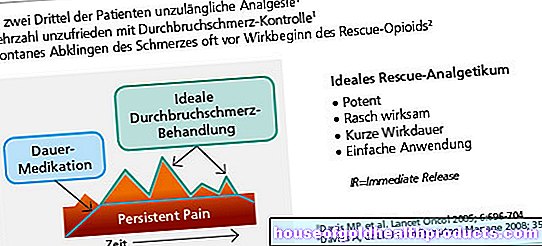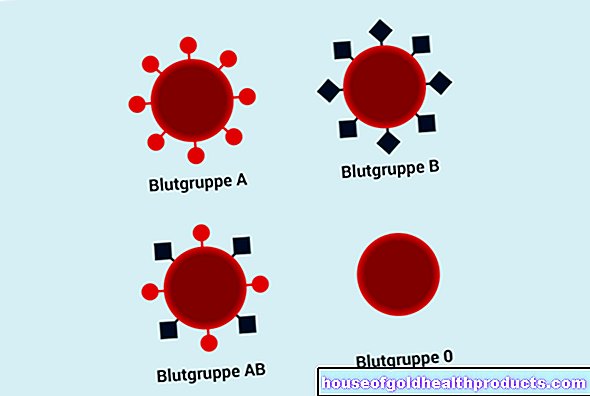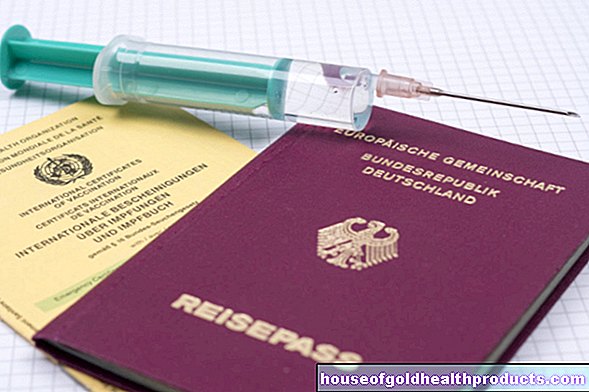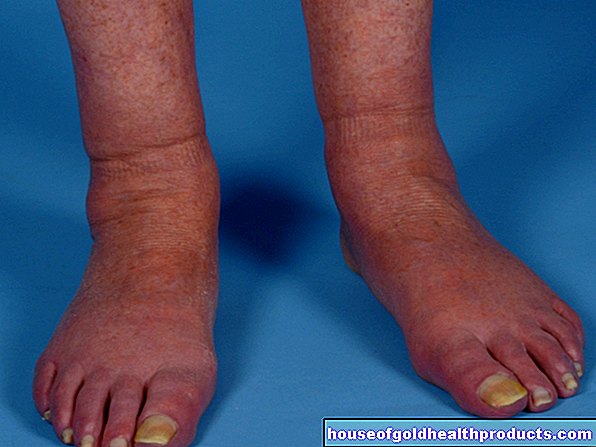Folic acid
and Eva Rudolf-Müller, doctorDr. med. Andrea Reiter is a freelance writer for the medical editorial team.
More about the expertsEva Rudolf-Müller is a freelance writer in the medical team. She studied human medicine and newspaper sciences and has repeatedly worked in both areas - as a doctor in the clinic, as a reviewer, and as a medical journalist for various specialist journals. She is currently working in online journalism, where a wide range of medicine is offered to everyone.
More about the experts All content is checked by medical journalists.Folic acid (folate, vitamin B9) is an essential vitamin that the human body cannot produce itself. It has to be ingested through food. Folic acid is important for the production of genetic material and for the formation of red and white blood cells. A deficiency can lead to dangerous anemia. Read everything you need to know about the vitamin folic acid!
What is folic acid?
Folic acid is one of the B vitamins and is found in almost all animal and vegetable foods. The human body cannot produce folic acid itself. But certain bacteria in the human digestive tract are able to do this.
What is folic acid good for?
Folic acid is important for the production of genetic material. It is therefore necessary for the growth and multiplication of cells, especially for the formation of red (erythrocytes) and white blood cells (leukocytes).
Adults consume around 400 micrograms of folic acid per day. The need is increased in women who take the contraceptive pill or are pregnant. The body can also store the vitamin, enough to meet its needs for three to four months.
Folic acid deficiency can lead to a certain form of anemia, megaloblastic-hyperchromic anemia. In unborn babies who receive too little folic acid from their mother, there is a risk of a developmental disorder of the nervous system: In so-called spina bifida ("open back"), one part of the spine remains open and the children are physically severely impaired.
Symptoms of folic acid deficiency in adults can include:
- Tingling of the tongue, burning tongue
- Inflammation of the mucous membranes (especially the lining of the intestines)
- Depression and irritability
- paleness
- Difficulty breathing
- diarrhea
- Cardiovascular diseases
- increased tendency to bleed
- fatigue
When is folic acid determined?
The doctor determines the concentration of folic acid in a patient's blood, among other things:
- long-term therapy with anti-epileptic drugs (drugs against epilepsy)
- therapy with certain anti-cancer drugs (folic acid antagonists)
- long-term dialysis
- Suspected folic acid deficiency (e.g. in multiple pregnancies, alcoholism, psoriasis)
- Anemia
Folic acid reference levels
|
Laboratory value folic acid |
Finding |
|
<2.0 ng / ml |
Folic acid deficiency |
|
2.0-2.5 ng / ml |
observable value |
|
> 2.5 ng / ml
|
Normal value of folic acid |
When is the folic acid level too low?
A too low concentration of vitamin B9 can have the following causes:
- Insufficient intake, for example with one-sided diet (for example in alcoholics)
- Disturbed absorption (absorption), for example in the case of inflammatory bowel diseases, celiac disease and celiac disease
- Taking certain medications (such as anti-epileptic drugs)
- increased need or loss of folic acid: for example during pregnancy, during growth phases, with cancer, psoriasis or certain forms of anemia (anemia)
Folic acid deficiency
You can find out how a deficiency in folic acid manifests itself and how you can remedy it in the article Folic acid deficiency.
When is the folic acid level too high?
Falsely high values can be measured if the patient has eaten before the blood sample is drawn. Blood should therefore only be taken after 12 hours of food abstinence. Too much folic acid is excreted through the kidneys. Overdosing is therefore not possible.
What to do if the folic acid concentration is low
If there is an increased need, for example during pregnancy, it is advisable to take folic acid as a preventive measure. If there is a deficiency in folic acid, it can also be compensated by taking preparations containing folic acid.
Tags: teenager unfulfilled wish to have children sleep





























